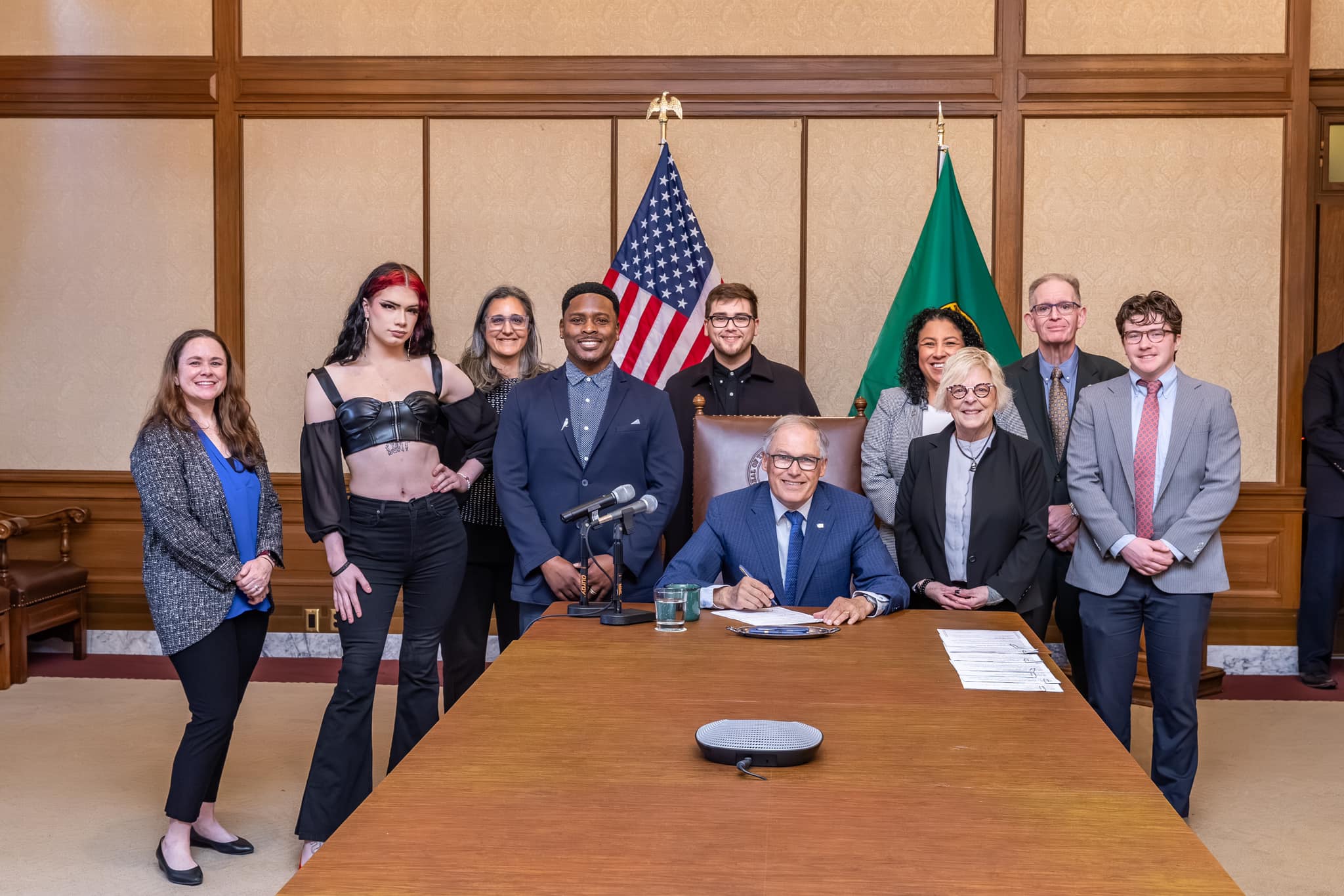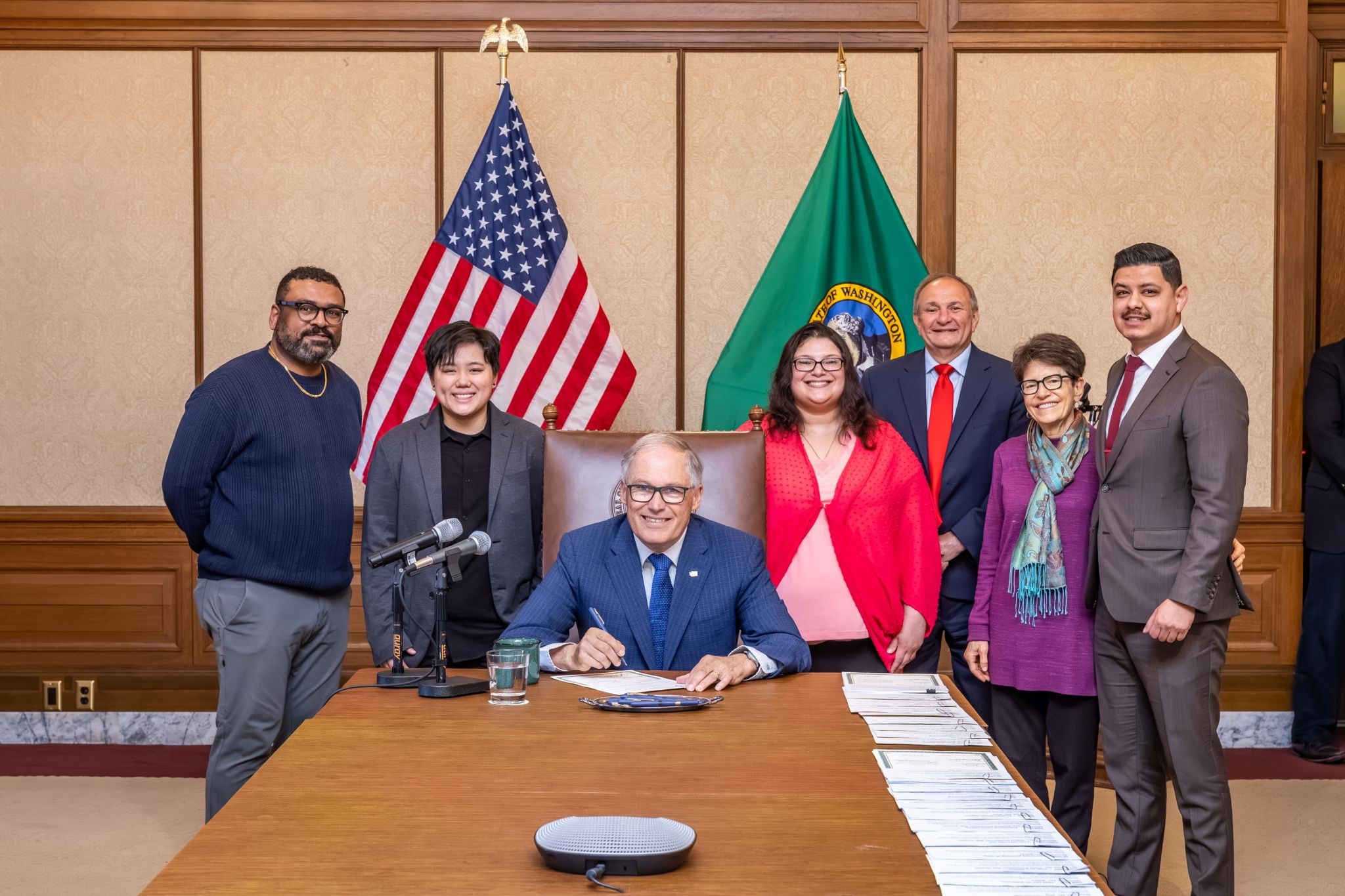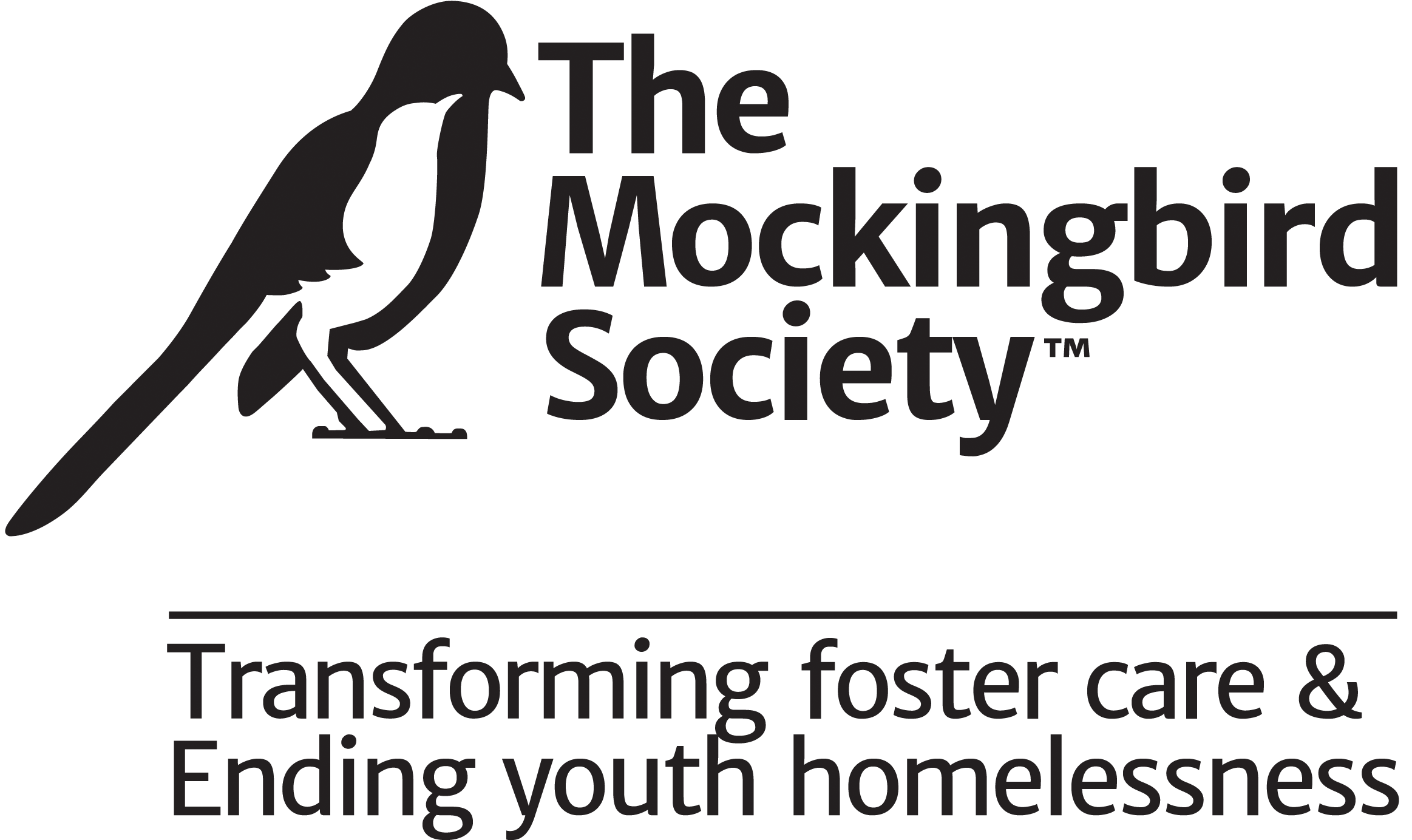our work
Current Issues
2025 Legislative & Administrative Agendas
Because of the changing nature of legislative session, there is a possibility that some elements of our legislative agendas will shift. Due to challenges associated with the state’s budget deficit, Mockingbird is continuing to assess the situation and respond strategically to our stakeholders’ evolving priorities and needs.
2025 Lead Legislative Agenda
Senate Bill 5082 | House Companion Bill 1429
Creating a housing assistance program for young people enrolled in Extended Foster Care (EFC)
Young people in the Extended Foster Care program (EFC) – state dependent youth – are homeless. The state has a moral and constitutional obligation to ensure that all young people in its care and custody are, at minimum, housed. This legislation creates a state-funded housing voucher program modeled after the federal Foster Youth to Independence (FYI) program. It is designed specifically for youth in Extended Foster Care (EFC) who are experiencing homelessness. Currently, federal restrictions prevent young adults from accessing both EFC supports and FYI housing vouchers simultaneously. By establishing a state-funded alternative, Washington will fulfill its obligation to ensure housing stability for young people in state care.
SB 5082 Champion: Senator Claire Wilson
HB 1429 Champion: Representative Jamila Taylor
Update on SB 5082:
We knew from the start of this session that the successful passage of our bill would be an uphill battle, particularly because of the state's significant $13 billion budget deficit. Because of the obstacles we faced this session, as well as our intentional decisions not to make concessions that could jeopardize the intention of the bill, SB 5082 did not make it into the Ways and Means Committee, and will not be passed this session. However, the community support for this bill and the powerful testimonies shared by young people throughout session demonstrated its importance, and has positioned us well for future advocacy around EFC.
Looking ahead, we already plan to bring this bill back in the 2026 Legislative Session. In the words of our Public Policy & Advocacy Director, Charles Smith, "This is not the end-- it is part of the journey toward ensuring young people in Extended Foster Care receive the housing stability they deserve."
Read the full update on SB 5082, learn more about bill, or hear the amazing testimonies from our young people throughout this session at the links below.
2025 Administrative Agenda
Permanent Supportive Housing (PSH)
Mockingbird is advocating for the state to allocate $250,000 to the Office of Homeless Youth to use for researching and developing recommendations to improve PSH access for young adults with developmental needs. This will involve funding, programming enhancements, and awareness campaigns.
Financial Capability
Addressing the financial challenges youth face when exiting the foster care system is crucial. The transition of these young individuals to stable independence is critical, and requires comprehensive support. Youth and young adults (YYA) have expressed discomfort with money management and are at risk of using high-cost or potentially predatory financial services, which can further disadvantage them. We are advocating for DCYF (Department of Children, Youth, and Families) to work with financial institutions and community partners to establish self-controlled bank accounts for eligible young people ages 14 and older.
Abuse Prevention Learning Standard
Central Chapter Topic
Washington’s K-12 youth currently receive limited education on certain types of abuse, specifically omitting physical, psychological, and financial abuse in health education standards. As youth increasingly face complex social and familial dynamics, education in these areas could enhance their ability to recognize and respond to harmful situations. The Mockingbird Society's Central Chapter is working closely with The Office of the Superintendent of Public Instruction (OSPI) to propose revisions to the existing health education learning standards. The updated standards would be focused on: Physical Abuse, Psychological/Mental Abuse, and Financial Abuse. This update addresses critical gaps in the current standards, preparing students with holistic awareness around all forms of abuse, potentially reducing risk and promoting safer, healthier communities.
Access to Food Stamps & EBT Benefits
Eastern Chapter Topic
The objective of this administrative work is to address vague and misleading language on SNAP Benefit eligibility on Washington State application platforms by creating a step-by-step guide with simplified language on all eligibility requirements, state and federal. Currently, young people between the ages of 18 and 22 living with a guardian are unable to qualify for SNAP benefits if the guardian is already receiving benefits, clarified in the federal definition of a “household.” However, state application sites omit this definition and circumstance, leading to confusion during the application process. By creating a simplified guide for the state application portal, we can ensure that all eligibility criteria, state or federal, are visible and consistent with all regulations for this program in Washington State.
Peer 2 Peer Support Co-Design Request
King County Chapter Topic
Youth in foster care often face significant challenges with stability, connection, and guidance during their time within the child welfare system. Lack of supportive, relatable mentorship can exacerbate these issues, impacting their ability to navigate the system as well as their overall educational, social, and emotional outcomes. To address this challenge, the King County Chapter is advocating for $250,000 to be allocated to the Washington State Office of Civil Legal Aid (OCLA) to initiate a co-design process, collaborating with foster youth and community stakeholders to develop a peer mentorship program tailored to the unique needs of youth in foster care. This will ensure the program is grounded in lived experiences and directly addresses the barriers foster youth face.
Transportation Support
Northern Chapter Topic
The Mockingbird Society's Northern Chapter has identified significant transportation gaps in Northwest Washington, creating challenges for community members in accessing essential services and resources. Limited transportation options impact youth, particularly those from underserved backgrounds, who face difficulties in reaching critical resources like healthcare, education, job opportunities, and social services. The Mockingbird Society Northern Chapter will collaborate with local government agencies, transit authorities, and private organizations to identify and implement innovative transportation solutions. This may include rideshare partnerships, community shuttle services, and subsidized transit passes.
2024 Legislative Wins
These policy wins are the culmination of young peoples' advocacy efforts. These are THEIR wins, and we celebrate these achievements with them.
SB 5908: Extended Foster Care - Lead Agenda Item
This marks The Mockingbird Society’s 70th major legislative win since its inception in 2000.

HB 1929: The Bridge Residential - Support Agenda Item
This support agenda item was carried to the finish line by Northstar Advocates and The Bridge Coalition. The Bridge will create two 6-10 bed community-based housing programs that young people can stay in for 1-90 days as they identify long-term housing. Behavioral health services, consultation, and technical assistance will be provided.

